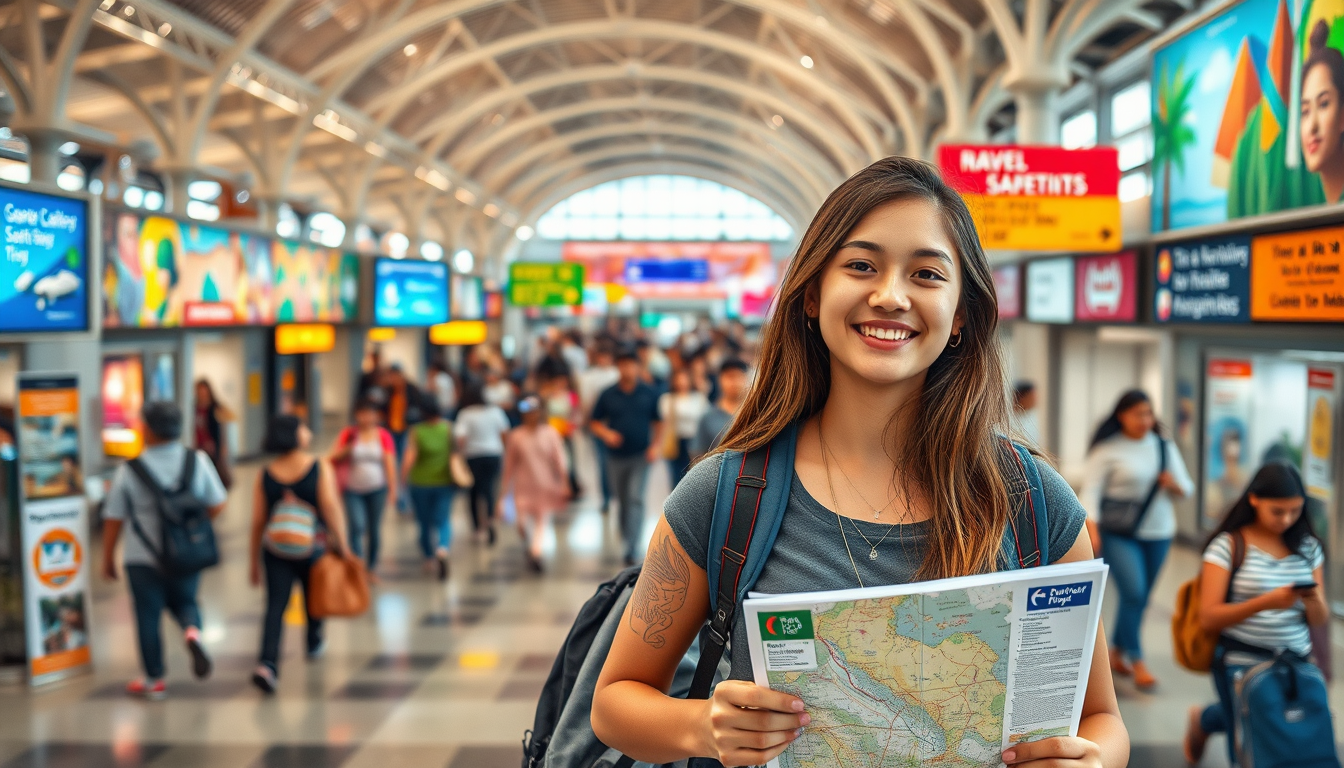
Traveling internationally is exhilarating—it offers the chance to explore new cultures, meet interesting people, and see breathtaking landscapes. But venturing to a different country also means stepping out of one’s comfort zone and adapting to unfamiliar environments. Safety is crucial to ensuring a smooth, enjoyable journey. Here’s a comprehensive guide to keep travelers prepared and secure during their adventures abroad.
Pre-Departure Tips
- Travel advisories from credible sources like the U.S. Department of State or your home country's equivalent.
- Local laws, customs, and any social norms to avoid unintentional disrespect or illegal acts.
- Common scams or areas that are known for pickpocketing or other crime. Being forewarned means you can be extra vigilant.
- Make multiple copies of your passport, visa, insurance policy, ID, and any other critical documents. Leave one copy with a trusted family member or friend back home and carry another in your luggage.
- Take pictures of these documents and save them on your smartphone, but ensure they're password-protected for added security.
- Health emergencies, including potential hospital stays or emergency evacuations.
- Lost or stolen belongings.
- Trip cancellations due to unexpected circumstances.
Safety Tips During Your Trip
- Dress in a way that aligns with local norms. Avoid flashy clothing or expensive jewelry that may mark you as a target.
- Refrain from carrying or flashing large amounts of cash.
- Be discreet when using maps, GPS, or travel guides, as doing so too obviously can indicate unfamiliarity with your surroundings.
- Using anti-theft bags with RFID protection, locked zippers, and slash-resistant materials.
- Keeping valuables close to your body, like in a money belt or a cross-body bag.
- Avoiding storing all your cash and cards in one place. Keep some emergency cash separate from the rest.
- Only use reputable transportation services like registered taxis or app-based rides, especially at night.
- If using public transit, be wary of overcrowded areas, as they’re prime spots for pickpockets.
- Inquire with your accommodation about reliable local transport and avoid unmarked vehicles or unlicensed drivers.
- Stay in well-reviewed hotels or rentals with strong security measures, such as 24/7 reception, surveillance, and secure entrances.
- Use the room’s deadbolt lock when in the room, and consider a portable door lock for extra safety.
- Familiarize yourself with emergency exits and procedures upon arrival.
- Using a Virtual Private Network (VPN) whenever you connect to a public network. This adds a layer of encryption to your online activity.
- Avoid accessing sensitive information, like online banking or private accounts, when on public networks.
- Drink in moderation and always keep an eye on your drink to avoid tampering.
- If going out alone, let someone know your whereabouts and return time.
- Be mindful of local alcohol laws and customs.
- Carry a small first-aid kit with essentials like bandages, pain relievers, and any medication you regularly take.
- Drink bottled water if tap water is questionable, and avoid ice in areas where water quality is poor.
- Only eat from reputable restaurants and be cautious with street food, particularly if you have a sensitive stomach.
Stay Aware and Trust Your Instincts
- Keep your phone and valuables out of sight and minimize distractions.
- Avoid walking alone in secluded areas, especially at night.
- Follow local news for updates on political events or weather conditions that may affect your plans.
- Leave the situation immediately. Whether it’s a conversation with a stranger or an overly empty street, it’s best to err on the side of caution.
- Seek assistance from a local authority, such as a nearby shop owner, or contact your embassy if you feel unsafe.
Emergency Preparedness
Wrapping Up: Safe Travels for a Fulfilling Experience
Traveling internationally can be transformative and rewarding. Prioritizing safety helps you make the most of each experience, allowing you to enjoy the sights, sounds, and cultures without unnecessary worry. By following these tips, you’ll be prepared for the unexpected and ready to embrace the joy of travel fully. Remember, preparation and mindfulness are your best travel companions—keep them close, and you’ll be well on your way to a secure and unforgettable journey.




